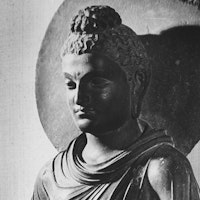Let your love flow outward through the universe, To its height, its depth, its broad extent, A limitless love, without hatred or enmity.
Gautama Buddha

Discourse on Good Will
Topic: Love, Compassion, & Kindness
May all beings be filled with joy and peace.
May all beings everywhere,
The strong and the weak,
The great and the small,
The mean and the powerful,
The short and the long,
The subtle and the gross:May all beings everywhere,
Seen and unseen,
Dwelling far off or nearby,
Being or waiting to become:
May all be filled with lasting joy.Let no one deceive another,
Let no one anywhere despise another,
Let no one out of anger or resentment
Wish suffering on anyone at all.Just as a mother with her own life
Protects her child, her only child, from harm,
So within yourself let grow
A boundless love for all creatures.Let your love flow outward through the universe,
To its height, its depth, its broad extent,
A limitless love, without hatred or enmity.Then, as you stand or walk,
Sit or lie down,
As long as you are awake,
Strive for this with a one-pointed mind;
Your life will bring heaven to earth.
Gautama Buddha, also known as Siddhartha Gautama, was a spiritual teacher and the founder of Buddhism. Born in the 6th century BCE in Lumbini, now modern-day Nepal, he was destined for greatness. At the age of 29, he renounced his luxurious life as a prince and embarked on a spiritual quest to find the ultimate truth about human suffering and the nature of existence.
After years of intense meditation and self-discipline, Gautama attained enlightenment under a Bodhi tree in Bodh Gaya, India, at the age of 35. He became the Buddha, which means "the awakened one" or "the enlightened one." Gautama Buddha spent the rest of his life teaching the Four Noble Truths and the Eightfold Path, which formed the core principles of Buddhism. His teachings emphasized the importance of overcoming desire and attachment to achieve liberation from suffering. Known for his compassion and wisdom, Gautama Buddha's teachings have had a profound impact on millions of people worldwide, inspiring them to seek inner peace and spiritual enlightenment. His legacy as a spiritual leader and philosopher continues to resonate and guide individuals on their spiritual journeys to this day.
Sutta Nipata
Ruppenthal, Stephen H., translator. The Path of Direct Awakening: Passages for Meditation. Berkeley Hills, 2003, [Sutta Nipata 1:143-152 "Discourse on Good Will"].

Gautama Buddha
Theme: Love

About This Gautama Buddha Quote From “Discourse on Good Will” [Commentary]
Gautama Buddha’s words, “Let your love flow outward through the universe, To its height, its depth, its broad extent, A limitless love, without hatred or enmity,” call for an expansive and boundless expression of love. This teaching encourages us to transcend our usual boundaries and biases, fostering a universal love that embraces all beings without exception. The essence of this message is to cultivate a love that is not hindered by personal grievances or societal divisions. By nurturing such limitless love, we align ourselves with the inherent goodness and interconnectedness of all life.
The context passage further illuminates this principle by extending the wish for joy and peace to all beings, regardless of their strength, status, or form. It emphasizes inclusivity, urging us to harbor no ill will towards anyone, regardless of their proximity or state of existence. This universal goodwill is not just a moral ideal but a practical guide for daily living. By developing a love akin to a mother’s protective care for her child, we are called to extend this nurturing care to all creatures. This practice fosters a sense of unity and harmony, dissolving the barriers that often lead to conflict and suffering.
Living in accordance with Buddha’s teachings, we are encouraged to let love permeate our actions and thoughts continuously. Whether standing, walking, sitting, or lying down, maintaining a focus on love transforms our lives and surroundings. This striving for boundless love is not only a personal journey towards inner peace but also a collective effort to bring “heaven to earth.” By embodying this limitless love, we contribute to a world where compassion and kindness prevail, enhancing the well-being of all.
Two Views on “Discourse on Good Will” (Sutta Nipata 1:143-152) [Commentary]
In the Discourse on Good Will, we are invited to expand our love outward, unbounded by the divisions our minds so often impose. Eknath Easwaran, a Hindu spiritual teacher and author, emphasizes that we are woven into a single web of life. The Buddha didn’t ask us to extend our goodwill selectively. This is universal love, a love without barriers of race, faith, or nationality. To live in harmony with this teaching is not merely an act of moral rectitude; it is an alignment with the very fabric of existence. When we nurture goodwill, according to Easwaran, we position ourselves in the natural flow of love and compassion that pervades the universe, making our hearts fertile ground for peace and contentment.
Rick Hanson’s perspective brings a modern angle to the Buddha’s wisdom, pointing out that cultivating goodwill is not just a spiritual endeavor but also a neurological one. Our inner landscape of thoughts and emotions is deeply interconnected with the structure of our brains. The act of thinking kind thoughts and feeling good emotions molds our brain, changing us at a biological level. When we practice Metta Bhavana, as Hanson advises, we are essentially rewiring ourselves for happiness. This approach reduces stress, enhances relationships, and helps navigate life’s challenges with resilience. Both Easwaran and Hanson remind us that goodwill and compassion are inherent parts of our being. Each of us is a vessel of potential love and kindness. Letting this love flow outward aligns us with a cosmic symphony, where every note is vital and interconnected. In loving without limits, we transform ourselves and contribute to the transformation of the universe.
Sutta Nipata 1:143-152 “Discourse on Good Will”
Resources
Related Quotes
Copyright © 2017 – 2026 LuminaryQuotes.com About Us